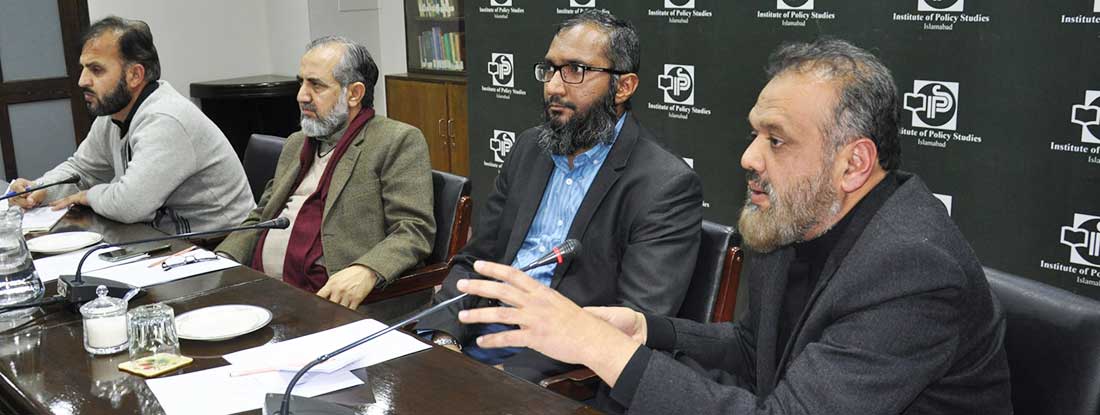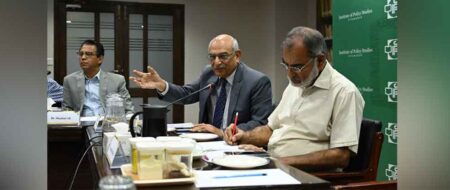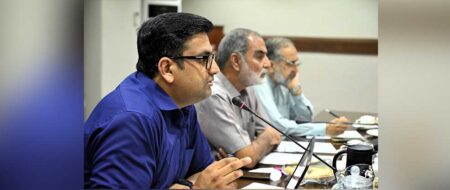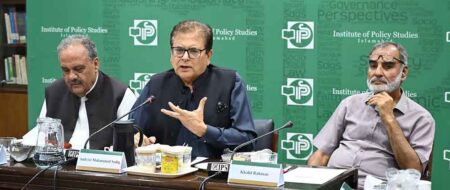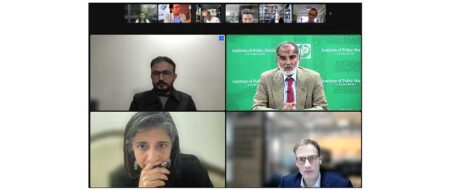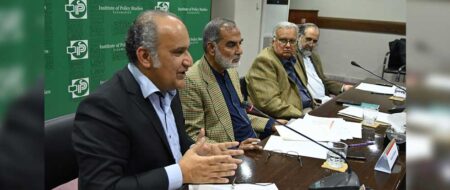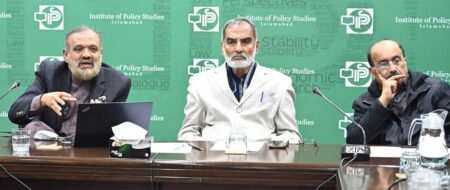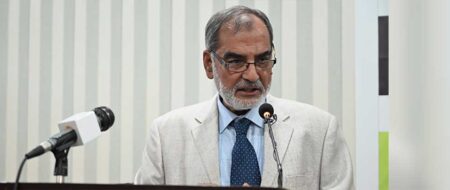Second roundtable on ‘Support to Social Protection including Social Health Protection’
Zakat economy is ultimate solution to social, economic, ethical problems: Speakers
Zakat economy is the ultimate solution to social, economic, and ethical problems of Pakistan, advocated speakers during a roundtable session titled ‘Support to Social Protection including Social Health Protection’ organized by IPS as part of its ongoing project to help develop an effective Islamic social finance model for sustainable social protection that can realize the dream of an Islamic welfare state in Pakistan.
The session, held on February 25, 2022, was addressed by Khalid Rahman, Chairman, IPS; Ambassador (r) Syed Abrar Hussain, vice chairman, IPS, Dr Salman Ahmed Shaikh, assistant professor, SZABIST, and principal investigator of the project, Dr Anwar Shah, associate professor, Quaid-i-Azam University (QAU), Islamabad, and co-principal investigator, and Dr Ikram ul Haq, secretary, Council of Islamic Ideology (CII).
Prominent participants of the session included Qanit Khalil, GM finance, Ufone; Mufti Sharafuddin, senior research officer, CII, Dr Ashfaq, senior research officer, CII, Dr Kashif Sheikh, assistant dean, Faculty of Social Sciences; Mufti Abu Bakar, manager shariah compliance, Silk Bank, Jamshed Imtiaz, Zakat and Ushr Department, Punjab, Faheem Riaz, Zakat and Ushr Department, Punjab, Ghazala Ghalib, lecturer, IIUI, Dr Muhammad Ayub, director, Riphah International University, Jamil Afridi, assistant director IT, Zakat and Ushr Department, Khyber Pakhtunkhwa (KPK), Mufti Masood Shah from Peshawar, and Naeemullah, deputy director, Capital University of Science and Technology (CUST), Islamabad.
The speakers pointed out that the most critical problem of the society, out of which emerge other problems, is acute poverty. According to an estimate, around one-third of the population of Pakistan is living below the poverty line leaving them vulnerable to all kinds of social, economic, and ethical evils. The only effective, long-lasting, and viable solution to deter and deal with these issues is the true implementation of the zakat system.
As discussed in the session, the zakat system should be fundamental in providing social protection as it alleviates poverty, increases wealth circulation, improves the living standards of underprivileged society, reduces class struggles, and frees society from interest. The speakers also asserted that the zakat system must be run by the government at the state level as only then all the people of the society could be involved.
Dr Salman Shaikh presented his empirical findings of zakatable assets and the estimated amount of zakat that could be collected on these assets. He further highlighted the gaps and lapses in this collection of zakat in Pakistan. One of the important shortcomings, among others, in this regard, as debated by Dr Salman, is the lack of trust of people in the government on matters relating to the handling and distribution of zakat.
While the participants of the session, including professionals from different universities, researchers from the Council of Islamic Ideology, and government officials, provided important comments and raised pertinent questions, the discussants agreed with the remarks of Khalid Rahman who suggested that the government should start microfinance projects to push wealth circulation as well as invite voluntary zakat. Moreover, the government needs to establish ways and means for safe zakat delivery to resolve the issue of trust in the government. Only then it can catalyze the social, economic, and ethical life of society.
The session concluded on the unanimous consensus that there must be more platforms for research and collective ijtihad on issues relating to zakat.


